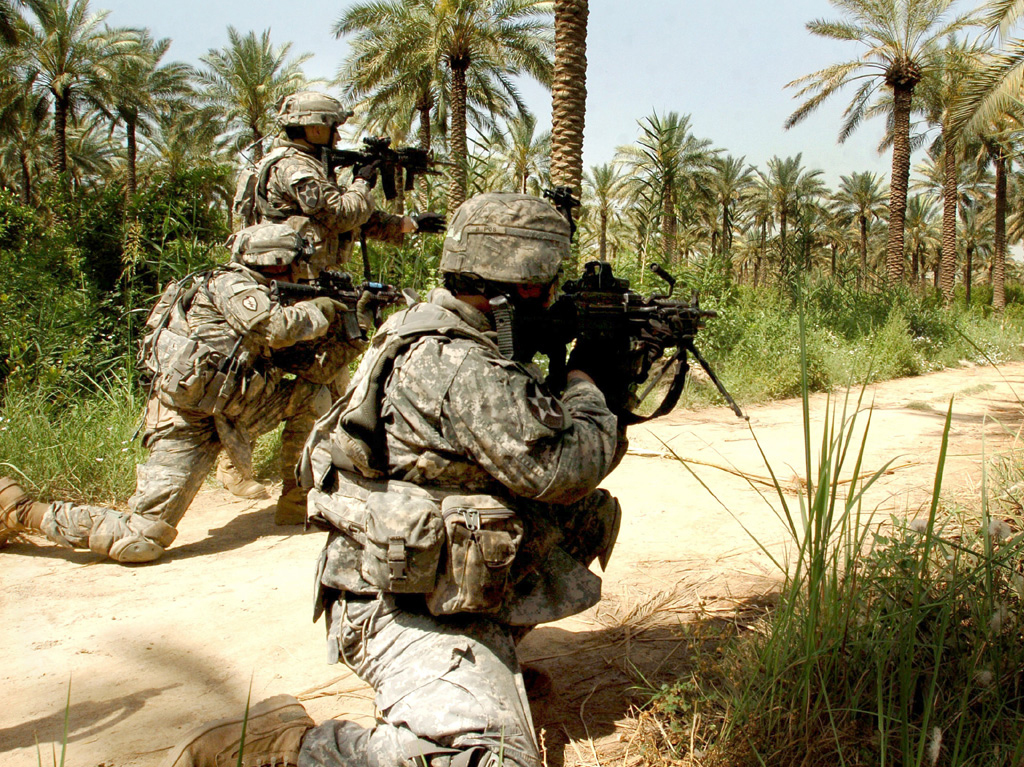The US military must prepare for murky, undeclared wars in which foreign entities use proxy insurgencies against established governments, typified by Russia and Iran, US Army Special Operations Command (USASOC) writes in a new white paper, Defense News reported.
The paper, "Counter Unconventional Warfare," describes how US rivals are employing unconventional warfare (UW) - the external sponsorship of insurgent and separatist movements - and argues for a comprehensive joint, inter-agency, intergovernmental and multinational [JIIM] strategy that applies "political, economic, military and psychological pressure," with a prominent role for US special operations forces.
The term unconventional warfare may be new, but the concept is familiar to US troops who created Filipino guerrilla forces to fight the Japanese during World War II and the Sons of Iraq in 2007. Today, Russia employs its "New Generation Warfare," to organize pro-Russian separatists in Ukraine, filling out their ranks with advisers and fighters, says the white paper. While Iran, it says, employs proxy forces that include Hezbollah in Lebanon, Hamas in Gaza, and various groups in Afghanistan, Yemen, Iraq and the Caucasus.
"While the joint force must prepare for protracted conflict with increasingly powerful non-state actors, we must also counter state adversaries who use modern military technologies as well as proxies and surrogates," the USASOC paper says. "Difficult to detect in a timely fashion via conventional methods, countering these hybrid threats will place a premium on broad-based intelligence efforts, rapid, coordinated innovation and adaptation, and a commitment to undermining the means and will of adversaries to persist in conduct inimical to US and allied interests."
Ahead of budget season, it is white paper season. The USASOC white paper and two recently released documents also highlight the Army's role in national defense and the spread of complex threats. There is a Rand study, "Improving Strategic Competence: Lessons from 13 Years of War," the Army's operating concept, "Win in a Complex World."
The US has used proxies of its own, partnering with irregular, "non-statutory" civil defense forces (CDFs) as a cheap, stop-gap security measure, though these groups can be difficult to control and have agendas of their own, according to a recent CNA Corp. report, "Risky Business: The Future of Civil Defense Forces and Counterterrorism in an Era of Persistent Conflict."
While the Obama administration's national security guidance eschews large-scale stability operations in favor of small-footprint "by, with, and through" approaches, the report presents a strategy for using civil defense forces to fight non-state organizations such as the Islamic State, al-Qaida in the Arabian Peninsula, al-Shabab, and Boko Haram, which have local political objectives and depend on the population for support.
How might an unconventional warfare approach look against the Islamic State? The US could thwart the Islamic State's recruiting efforts by using foreign double agents to taint the ranks and sew distrust, writes Clint Watts, a former executive officer of the Combating Terrorism Center at the US Military Academy at West Point, in the blog "War on the Rocks" on Oct. 20.
"Unconventional warfare approaches always have potential disadvantages or consequences that naturally arise when working through surrogates rather than the direct command of militaries," Watts writes. "But the US's taste for large enduring deployments has long soured; proxies must now be utilized to defeat [the Islamic State]."
Naming the rise of the Islamic State, Russian revanchism and the Ebola outbreak in West Africa, as three surprising and disruptive "black swan," events, USASOC commander Lt. Gen Charles Cleveland said the US must maintain a "persistent influence" in foreign nations, for peace, stability and good governance, to get ahead of conflicts before they metastasize.
And he argued against budget cuts that undermine such efforts.
At a panel at the US Army's annual meeting on Oct. 15 with a State Department official and policy experts, Cleveland called for an interagency planning framework, and the ability to win through a whole-government approach, without US military's "iron mountain."
"Unconventional warfare is a form of warfare, and there are practitioners out there across the globe that are getting very good at it," Cleveland said. "Do we not owe the American people a capability to be as good as our adversaries at this form of warfare - and know it to the detail needed so we can counter it or practice itself when our interests are at stake?"
Sarah Sewall, undersecretary of state for civilian security, democracy and human rights, said military and the State Department must work together closely amid "dynamic" and "gray" scenarios. Categories such as insurgency, terrorism and civil wars are blurring together, and defying categorization.
"Failures of governance and rising extremism are interrelated phenomena that are structurally tearing apart at the global fabric," Sewall said, adding later: "We are needing to intervene earlier, before things are being seen as full-blown crises."
Lt. Gen. H.R. McMaster, director of the Army Capabilities and Integration Center, said the service should build expertise in negotiation theory, interest mapping and how to exert influence, whether through persuasion or coercion.
"I think we have to bolster the legitimacy of our key partners and ultimately trace grievances back to the enemy, who are really causing these problems," McMaster said.
The US has a choice to help stabilize nations now in a deliberate way, or fight wars later, said Max Boot, a senior fellow at the Council on Foreign Relations.
"If we don't have nation-states that are capable of keeping peace - law and order - on their own, that creates gaps which extremist groups like [the Islamic State] can exploit, and then we get sucked in to deal with the resulting problems," Boot said.






